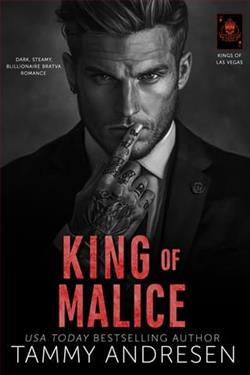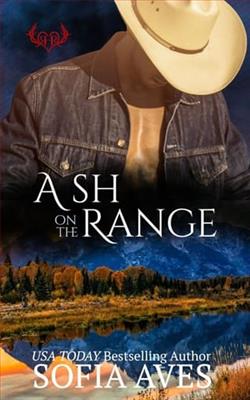Page 22 of The Dragon Ring
We descended some wooden steps and took the cobbled roadway back toward the Great Hall before he answered.
“They’ve made inroads in the east. Guorthegirn the Usurper invited them in when he was Imperator, as foederati– mercenaries– because he couldn’t raise a big enough army himself to defend our shores. His problem was that in the East, or the far west, where the dangers lay, and still do lie, the people there had little money to pay in taxes to support the army, whereas in the fat south and center the people felt insulated and safe. Since Guorthegirn had reduced all the taxes when he came to power to make himself popular, it was very hard for him to raise them again unopposed.”
“Taxation is always unpopular.” I stepped over a pile of horse droppings. “Even in my world it’s a problem.”
He nodded. Raindrops sparkled like jewels in his brown hair. “No one wants to pay for someone else’s defense, do they? Not when they feel they themselves are safe. So Guorthegirn called in the Saxons, Hengest, and his brother, Horsa, with their Yellow Haired warriors. I was there when they came to meet Guorthegirn, young and brave and boastful. I heard their empty promises to help him in return for land to settle.”
His brows came together in a heavy frown.
“They said one thing to his face, but they meant another. From two hundred, they’ve grown to many thousands today. Ambrosius inherited Guorthegirn’s problem and now those problems are Uthyr’s. The High King isn’t strong enough to drive them out, and because they know he’s maimed, they press us hard. All Uthyr can do is hope to curb their spread. And that’s nigh impossible.”
“Which parts of the East do they have?” We were nearly at the Great Hall, whose doors stood open. With the rain had come low cloud, making it impossible to see the wooded plain that lay between us and the Tor.
“Ceint, southeast of Caer Lundein, where Guorthegirn originally granted Hengest and his men lands,” Merlin said, guiding me toward the doors.
Kent– I knew that was the first Saxon territory gained in Britain.
He went on. “And sixty miles north of Caer Lundein, toward the coast. They’ve good natural defenses there– the marshes and the forests protect them from us, but they also put a barrier on their expansion. We’ve not much to worry about from them. But there’s another settlement up toward the Wall, under Hengest’s son, Octha, and they’re growing in strength. Guorthegirn sent them up there to protect us from the Picts, but now they’re more of a danger than the Picts themselves, and Guorthegirn’s been in his grave these thirty years.”
I stopped under the overhanging thatch in front of the Hall doors. Two guards were there as usual, the butts of their long spears resting on the ground. They looked at me with interest.
“Where are you getting the most trouble from?” I asked.
Merlin shrugged. “As easy to ask which ant in an anthill bites the worst. It varies. Now they’ve established permanent settlements in Britain, they’re free to bring over more keels of raiders, to sail along our coastline and attack where they will. The fact that it’s nearly winter doesn’t seem to put them off over much. News of a couple of keels of Saxons raiding near Caer Durnac took Arthur off about a week ago.”
I had no idea where that was.
“The weather’s been wet, but there’s been wind for sailing, and even when there’s no wind, they’ve oars to their boats that’re faster than sails. They’re shallow bottomed and easy to pull up on a beach so their warriors can leap ashore and be inland before warning is raised. They pillage– taking food and weapons and gold if they can find it. And women, too. There’s a ready market for slaves across the sea in Gaul and further on into the Mediterranean.”
It was weird hearing him talk about geography. I’d expected him to have little knowledge of the world outside Britain, perhaps to only have known his own small part of it. But until not so long ago Britain had been part of the Roman Empire. There might even be maps he could have seen.
From where we were standing we could see the main gates, and now something seemed to be going on down there. Guards ran along the wall-walk and down the steps to fling the gates open. A trumpet blew, its voice strident in the wet air. People’s heads turned toward the sound. A rider came through the gates, then another and another. I couldn’t see them clearly, but I could see they were carrying shields. And on the white shield of the foremost rider a black bear reared up on its back legs aggressively. I didn’t need telling.
Arthur was back.
Chapter Seven
The rain drippedfrom the thatch and splashed into puddles on the cobbled roadway that led up from the gatehouse. Standing in the shadows, I watched as the riders made their way toward the Great Hall. The man with the big black bear on his shield was joined by another, whose shield bore a leaping silver fish on a black background.
I watched their approach in a curiously detached way, as though at home in my sitting room, and this the opening scene of a film unfolding before me, none of which could touch me.
But of course, it could.
I didn’t need Merlin to tell me who the warrior with the bear emblem was. I knew without a doubt that the man riding up the slope toward us was Arthur. I think I would have known even if I hadn’t recognized his shield from the duplicate hanging in his bedchamber. Forty yards away, boys came running out of the stables to take their horses. It seemed that when you were a prince you didn’t need to look after your own animal.
Arthur dismounted.
He was tall, his long dark hair plastered to his head by the rain. A voluminous cloak draped around his shoulders partly obscured the glitter of a ring mail shirt. Beside him, the red-headed fish warrior said something that made him laugh, and he punched the other man playfully in the shoulder. Laughter rippled through the rest of the warriors, as they too swung down from their horses with the exhausted air of men who’d ridden all night.
“Wait here. Don’t move.” Merlin strode down the slope, leaving me with only the two guards for company.
He reached Arthur and his red-headed companion. I watched him speak to them, saw their heads turn and look up the slope toward the Hall and me, saw Merlin put his hand on Arthur’s arm, and the red-headed warrior return Arthur’s playful punch. The three of them began to walk up the slope toward me.
I put a hand on one of the door posts to steady myself. The roughness under my fingers grounded me in reality. Here, walking up the rise through the rain, was living, breathing proof that everything my father had believed was true. I took a deep breath and raised my chin.
They stopped in front of me. The fish warrior stood the tallest, solidly built and wide shouldered. Arthur, in the center, was an altogether leaner specimen than the fish warrior. I stared at him: heavy, black brows above eyes so dark they could have been black, too, a long aquiline nose, and a week’s growth of dark beard. A white scar puckered his left cheek from just below the eye, and a blood-stained bandage covered his left hand.
“Welcome to Din Cadan, Lady Guinevere,” he said. His voice was deeper than Merlin’s, a voice for issuing orders, not reading poetry.















